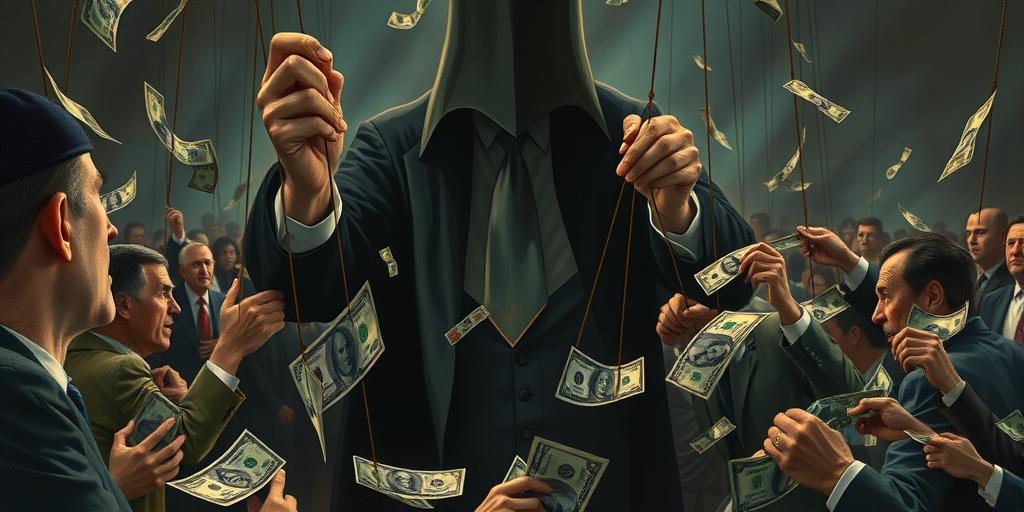Have you ever felt a creeping unease watching the political landscape? A sense that something's rotten in the state of democracy? You're not alone. We're diving deep into the murky world of Super PACs, the shadowy behemoths that are slowly but surely eroding the very foundation of our democratic process. These aren't your average political action committees; they're the ultimate money-over-morals machines, wielding their financial muscle to sway elections and shape policy in ways that leave many of us feeling powerless and disillusioned. Buckle up, because the truth about Super PACs is far more disturbing than you might imagine.
The Rise of the Super PAC: How Big Money Took Over Politics
The story begins with Citizens United, the infamous Supreme Court case that effectively unleashed a flood of corporate and wealthy donor money into campaigns. This decision paved the way for the rise of Super PACs, independent expenditure-only committees that can raise unlimited sums of money from corporations, unions, and individuals. The ability to spend unlimited amounts of money to influence elections without disclosing the actual donors, opens the door to a level of corruption previously unimaginable. This is a key issue which we will elaborate further below. Unlike traditional PACs, Super PACs can't directly contribute to candidates, but they can spend unlimited amounts to support or oppose them through television ads, internet campaigns, and other forms of media, effectively drowning out the voices of ordinary citizens. The chilling effect of this unlimited money is an erosion of the democratic ideal, and a shift of power away from the people and into the hands of the wealthy elite. This means that the politicians are beholden to the few, and not the many. This is a critical point for the future of our democracy and needs to be addressed.
The impact of unlimited spending
The implications of allowing unlimited spending in elections are dire. It creates an uneven playing field where candidates with access to massive Super PAC funding have a significant advantage over those who rely on smaller donations or grassroots support. This makes it harder for lesser-known candidates, those without high-net worth allies to compete effectively, which essentially limits the pool of potential representatives from a variety of demographics, backgrounds, and beliefs. This creates an inherent bias in our representative government, further shifting power into the hands of the already privileged and influential.
The Lack of Transparency: Who's Really Pulling the Strings?
One of the most alarming aspects of Super PACs is the lack of transparency surrounding their funding. Unlike traditional PACs, Super PACs are not required to disclose their donors' identities, creating a culture of secrecy and potential corruption. This lack of transparency makes it difficult to track the flow of money, identify potential conflicts of interest, and ultimately hold those who are funding these groups accountable. This makes it possible for powerful entities to manipulate our political landscape without being easily held accountable. This lack of accountability is a significant threat to the democratic ideal.
The dangers of undisclosed donors
The fact that donors can remain anonymous allows for special interests to exert their influence without having to be upfront about it. It opens doors to quid pro quo arrangements, and fosters an environment of distrust and cynicism. We, the voters, deserve to know who is funding these organizations, what their motivations are, and what they hope to achieve. If the voters don't know who is influencing their elected officials, this creates a critical gap in accountability. This secrecy undermines the integrity of our elections and threatens to further damage trust in our government.
The Influence of Super PACs on Policy Decisions
The influence of Super PACs extends far beyond election campaigns. Once elected, politicians often feel indebted to the wealthy donors and special interests who funded their campaigns, leading to policy decisions that favor these groups over the general public. This creates a system where the interests of the few outweigh the needs of the many. This is a recipe for inequality, corruption, and ultimately the erosion of public trust in government. This leads to a distorted political environment that prioritizes the wealthy and powerful at the expense of the ordinary citizens.
Policy impacts and the long term effects
The effects of Super PACs on policy decisions are far-reaching. It shapes everything from environmental regulations to healthcare reform, education to financial policy. These policies reflect the desires of large corporations and wealthy donors rather than the needs of the general public. The long-term effects can be devastating, leading to greater inequality, environmental damage, and a breakdown of the social fabric. Super PACs are not simply a problem for the politicians – they have far-reaching implications for every single one of us.
Fighting Back Against the Influence of Super PACs
The fight to rein in the influence of Super PACs is an uphill battle, but it's one that's crucial to the future of our democracy. We need campaign finance reform that increases transparency, limits spending, and empowers ordinary citizens to have a greater voice in the political process. We need to demand more accountability from our elected officials, ensure that they act in the best interests of their constituents rather than the deep-pocketed donors. We must be vigilant and active in resisting the influence of money over morals in politics. By engaging in informed political discourse and voting in every election, we can strengthen our democracy and limit the power of these organizations.
Take action today, and help fight for a more democratic system! Don't let big money win! Contact your elected officials and demand change.









